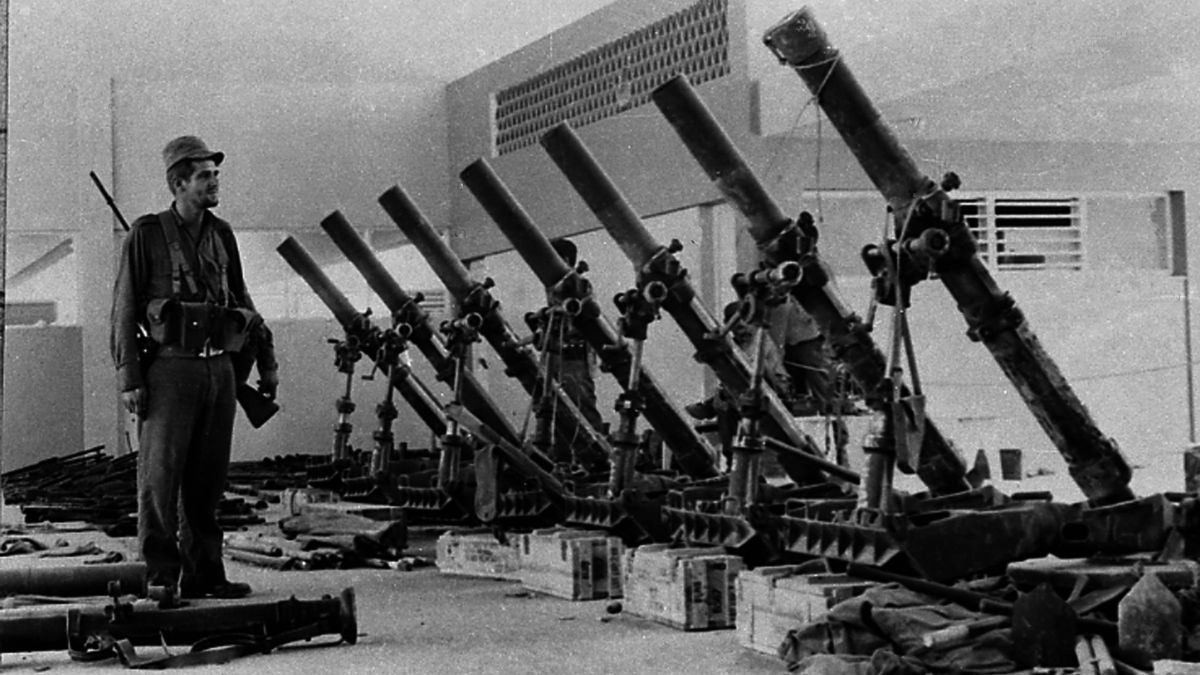On April 17, history bore witness to three vastly different but deeply consequential events — each shaping the future of a nation in distinct ways.
In 1961, a US-backed attempt to topple Fidel Castro’s government ended in disaster at Cuba’s Bay of Pigs.
In 1975, Phnom Penh fell to the Khmer Rouge, marking the beginning of one of the most brutal regimes of the 20th century.
And in 1982, Canada formally assumed full legislative independence from Britain through the Canada Act.
Bay of Pigs invasion begins (1961)
On April 17, 1961, the United States launched a covert operation that would become one of the most conspicuous failures of Cold War-era foreign policy — the Bay of Pigs invasion.
The operation involved over 1,400 Cuban exiles, trained and armed by the US Central Intelligence Agency (CIA), landing on Cuba’s southern coast in a bid to overthrow the revolutionary government of Fidel Castro.
The seeds of the operation were sown during US President Dwight D. Eisenhower’s administration, with planning and recruitment starting as early as 1960.
The CIA hoped that a swift amphibious assault would trigger a popular uprising against Castro, whose alignment with the Soviet Union had deeply alarmed US officials.
When John F Kennedy took office in January 1961, he inherited the plan and, despite reservations, gave it the green light with some modifications, including reduced air support to limit visible American involvement.
The invasion force landed in the Bay of Pigs (Bahía de Cochinos) in the early hours of April 17. However, the operation quickly unravelled.
The exiles faced fierce resistance from Cuban armed forces, and expected reinforcements or uprisings failed to materialise. A planned series of air strikes to disable the Cuban air force had been partially cancelled by Kennedy, leaving the invaders vulnerable.
Within 72 hours, nearly all of the invading force had been killed or captured. More than 100 were killed in combat, and over 1,100 were taken prisoner.
The US government, despite initial denials, was soon exposed as the operation’s sponsor. Kennedy was publicly humiliated and the failed mission severely damaged his credibility early in his presidency.
The international fallout was significant. The botched invasion bolstered Castro’s standing domestically and internationally, cementing his rule and pushing Cuba further into the Soviet camp.
The fiasco also deepened Cold War tensions, contributing directly to the Cuban Missile Crisis of October 1962. During that crisis, the Soviet Union attempted to place nuclear missiles in Cuba, leading to a near-confrontation with the US that brought the world to the brink of nuclear war.
The captured invaders were eventually released in December 1962, after the US negotiated a deal that involved sending $53 million worth of food and medicine to Cuba.
Despite the resolution, the Bay of Pigs left a lasting legacy of mistrust between the US and Cuba, and became a symbol of Cold War miscalculations.
The failure also reshaped US intelligence and covert action policies. Kennedy, stung by the experience, reportedly told his advisors, “I want to splinter the CIA into a thousand pieces and scatter it to the winds,” though he never followed through with dismantling the agency.
In the aftermath, the administration also authorised a series of other clandestine operations against Cuba, including the infamous Operation Mongoose.
Today, the Bay of Pigs invasion stands as a stark example of how flawed intelligence, political hubris and unrealistic expectations can combine to produce disastrous foreign policy outcomes. It remains a cautionary tale studied by military and diplomatic historians alike.
Phnom Penh falls to the Khmer Rouge (1975)
On April 17, 1975, after five years of civil war, the Cambodian capital of Phnom Penh fell to the communist Khmer Rouge.
The group, led by Pol Pot, quickly began implementing a radical vision to transform Cambodia into an agrarian socialist society. The regime emptied cities, shut down schools and hospitals, and abolished money and religion.
Between 1975 and 1979, an estimated 1.7 to 2 million Cambodians — nearly a quarter of the population — died due to execution, starvation, forced labour, and disease.
The atrocities committed during this period are now known as the Cambodian genocide. The Khmer Rouge remained in power until Vietnam invaded Cambodia and overthrew the regime in January 1979.
Canada Act proclaimed (1982)
On April 17, 1982, Queen Elizabeth II signed the Canada Act into law during a public ceremony in Ottawa, formally ending British legislative authority over Canada.
The act, passed by the UK Parliament, allowed Canada to “patriate” its Constitution, meaning it now had full control over constitutional amendments without requiring British approval.
The Canada Act included the Constitution Act, 1982, which introduced the Canadian Charter of Rights and Freedoms — a foundational document that protects individual rights and liberties.
While the act was celebrated as a landmark in Canadian sovereignty, it was controversial at the time due to Quebec’s refusal to sign the agreement, an issue that still resonates in Canadian politics.


)

)
)
)
)
)
)
)
)



